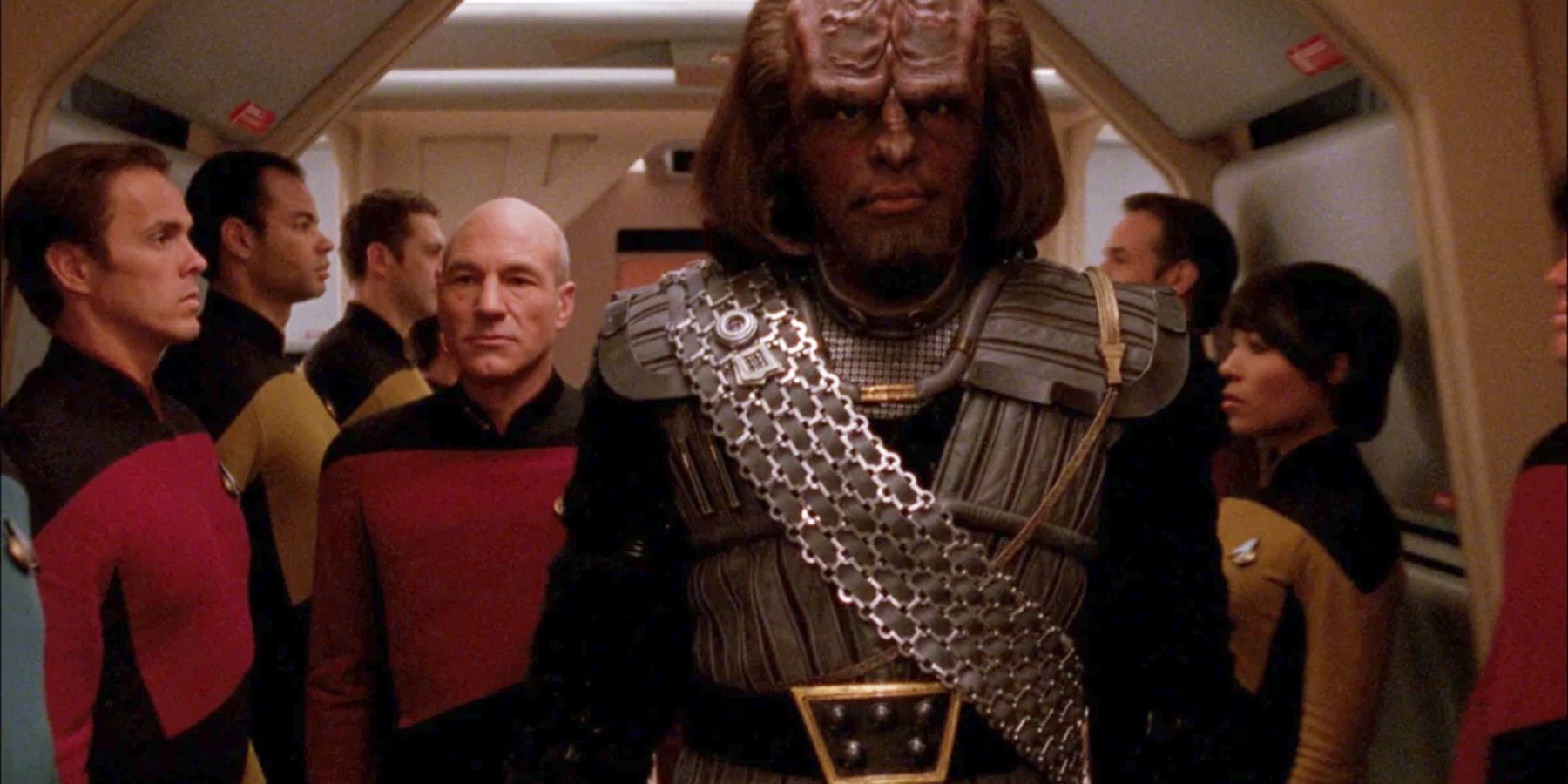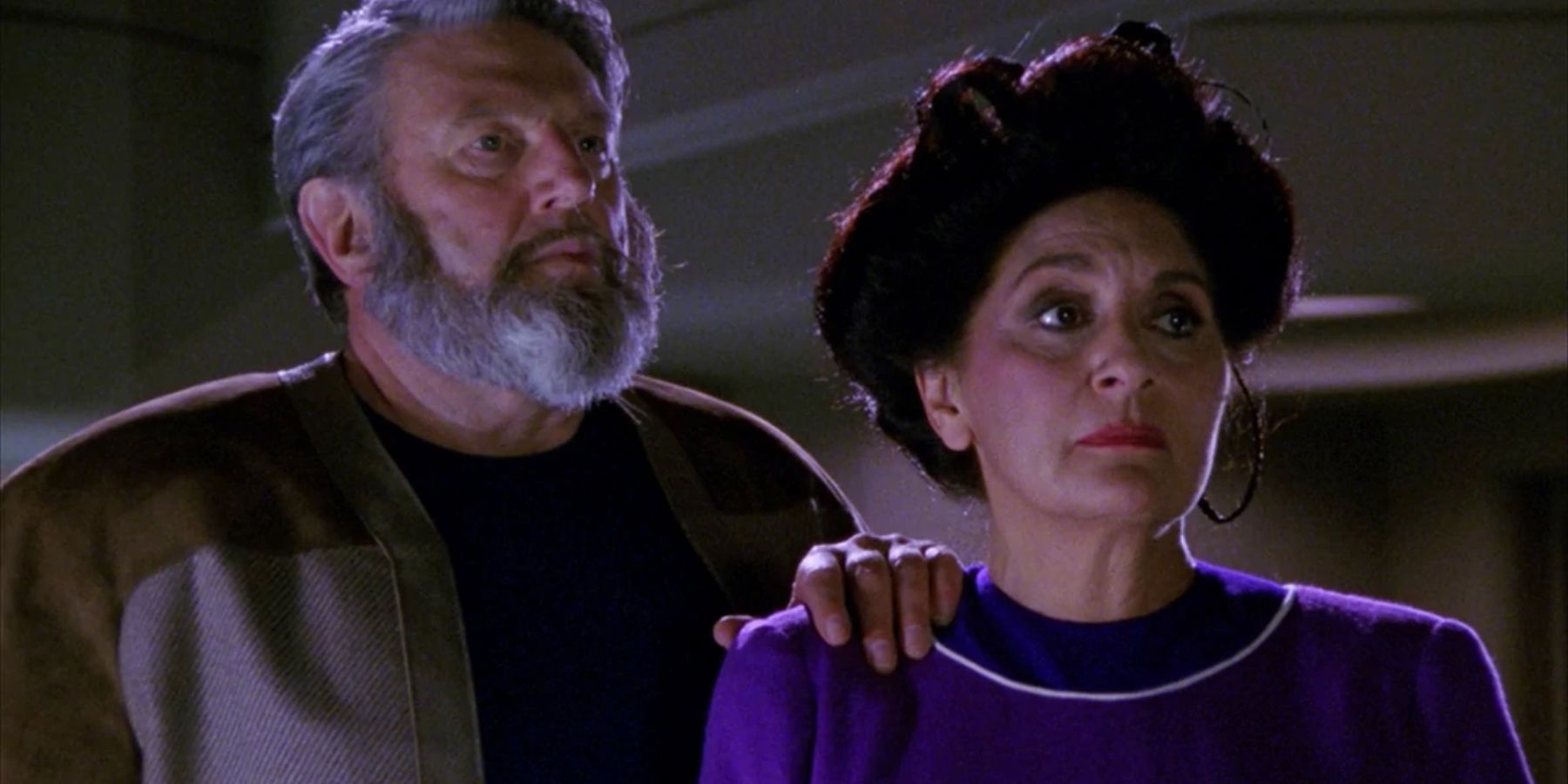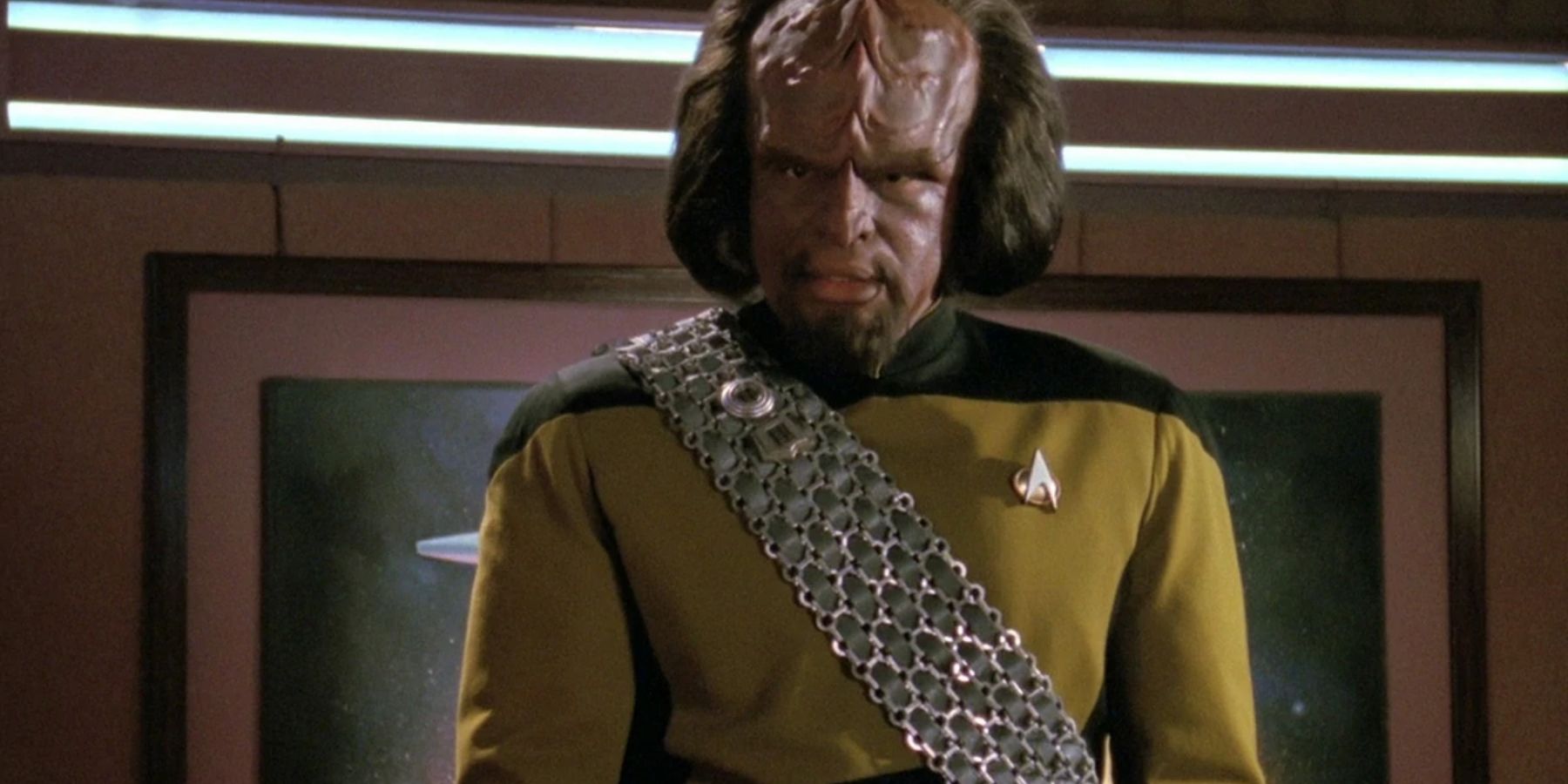Star Trek has been gracing screens big and small since it’s creation in the late 1960s, and has over the years become a founding figure in the science fiction genre. That’s not to say it was the first of the genre, not by any means, but it did influence a vast majority of visual science fiction, as well as being so ingrained in popular culture even today. The show had changed a lot since its creation, something the creator Gene Roddenberry might not have been too happy about. However, he would undoubtedly have been proud of the legacy he created, breathing life into an expansive franchise of wonderful technologies, alien races, and fantastic characters. One such character became a fan favorite: Worf, son of Mogh, the first Klingon to join Starfleet.
Through his strong, stoic, yet sometimes deeply emotional story, audiences got their first glimpse at the Klingons through a lens not clouded by war. Up until Worf's introduction in TNG, the Federation had been in conflict with the Klingon empire (albeit a fairly different-looking race of Klingon). Thus, the character was the perfect opportunity to show Klingon civilization and culture without them being the enemy. Worf was interesting, however, as his relationship with Klingon culture was far from normal. Instead of growing up in a typical Klingon household and around other people of his culture, Worf was actually brought up by humans.
At the age of five, Worf's birth parents took him to live on the Khitomer colony, which was unfortunately attacked by the Vulcan counterparts the Romulans, killing almost all of the 4,000 Klingons living there. Among the dead were Worf’s biological parents. When the Federation starship USS Intrepid came to help, an officer named Sergei Rozhenko found Worf among the ruins of his old home, and, upon finding out that he had no living relatives, decided to raise him on their farm alongside his wife Helena. They lived on the federation colony Gault, which notably had no Klingon residents. Despite growing up in a loving human family, being considered a brother to Sergei and Helena’s son Nikolai, Worf's adoptive parents tried to accommodate and introduce as much Klingon culture into his life growing up, including the language and some tasty blood pies. They hoped that he would not only feel at home, but understand his heritage.
Examining Worf as the adult whom audiences see during the series, he is time and time again called out by other Klingons as being very un-Klingon in many of his actions. The first reason for this is that he is a great study of what is known as alienated native orphan complex: he has been almost completely assimilated into alien to his culture, all while frantically holding onto links to his own culture. While growing up, Worf desperately tried to absorb everything Klingon from afar. He inherently took on various human traits due to environment, but was still always looking for connections and links to his ‘birthright.’
It could be argued that his obsession with this means he massively overcompensates for his human upbringing, to the point where he embodies everything Klingon to the point of extremism. Worf breaks Starfleet uniform protocols in order to wear a Klingon sash (and is the only officer allowed such a luxury) as a form of identification, distancing himself from humans and cementing himself as truly Klingon. Knowing the culture second hand gives him the fundamentals, such as Klingon history and their dedication with honor, but it almost makes him rigid and awkward, as Klingon society has moved away from the historical outdated traditions that Worf upholds. He gets mocked by native Klingons for this, as well as his problem with humor and relatively tidy haircut.
The other, more serious reason for Worf’s strange relationship with his race's culture is that he doesn’t fully want to be Klingon. This was down to a traumatic event that happened in his past. When Worf was just thirteen years old, his very nature caused the death of another child. It’s revealed in the much grittier DS9 episode “Let He Who Is Without Sin…” that during a soccer game, he accidentally killed a human boy. Although the incident was completely accidental, still the deep-rooted trauma stayed with him. It was the first time he realized how much stronger he was compared to the others, who were mostly human, and caused him to develop the extreme levels of self-control audiences see within his appearances during the shows and movies. Worf cannot let his emotions out, or be as free or loose with his emotions as the majority of Klingons are, so everything about him is carefully controlled and subdued.
While he may desperately want to be Klingon, his trauma stops him, holing him back from embracing it fully in fear he might hurt someone else. This caring nature is another remnant from his human upbringing, and one that makes him one of Star Trek’s most interesting and layered characters.






